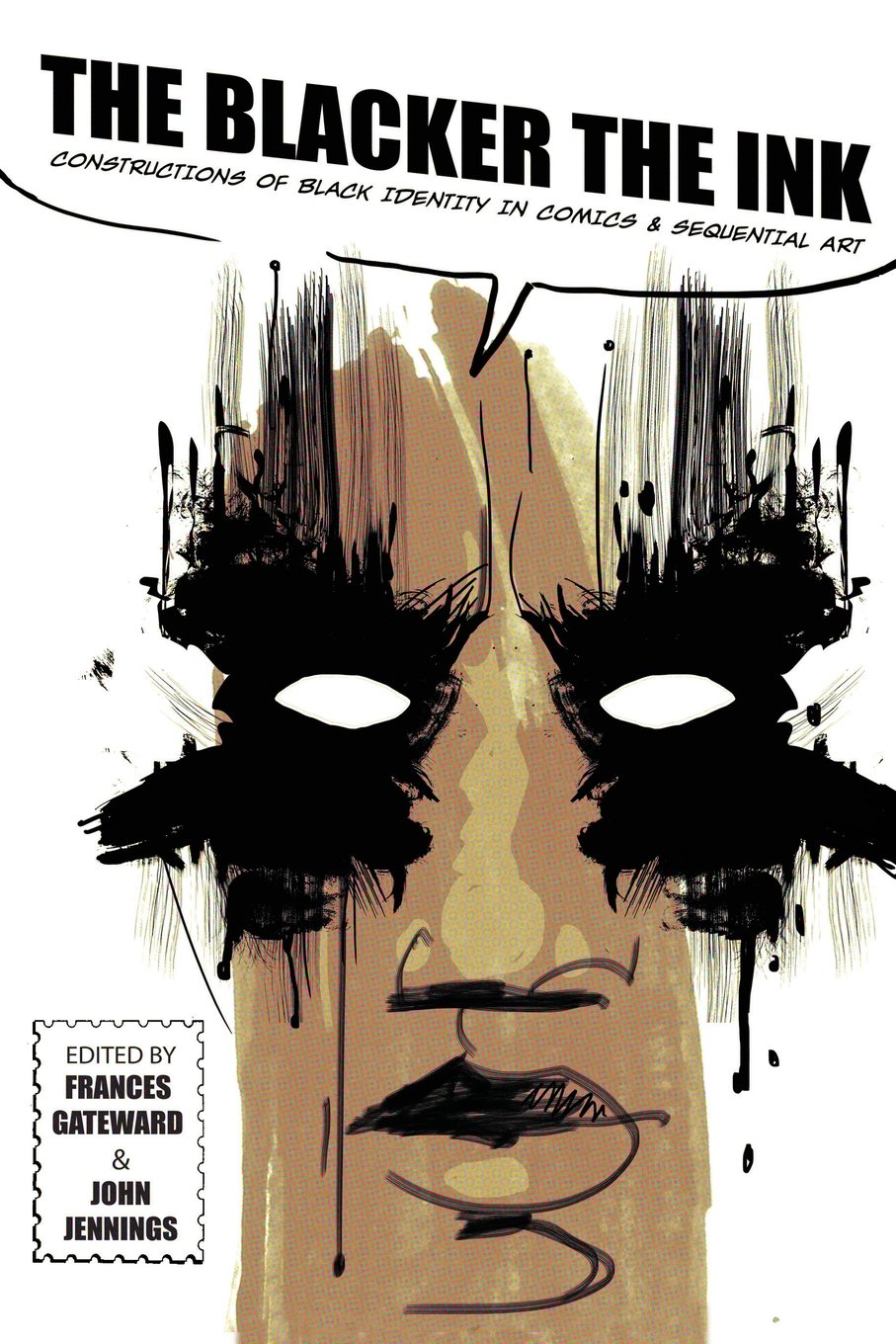 "The Blacker the Ink: Constructions of Black Identity in Comics and Sequential Art", from Rutgers Press, 2015.
"The Blacker the Ink: Constructions of Black Identity in Comics and Sequential Art", from Rutgers Press, 2015.MCS Professor Blair Davis has recently published a book chapter in the new anthology The Blacker the Ink: Constructions of Black Identity in Comics and Sequential Art, edited by Frances Gateward and John Jennings from Rutgers University Press.
Davis's essay, entitled "Bare Chests, Silver Tiaras and Removable Afros: The Visual Design of Black Comic Book Superheroes," examines the ways in which several Marvel and DC African America superheroes were constructed in terms of their costumes in the 1970s, how these visual designs evolved over the decades that followed, and how they reveal hidden cultural meanings upon closer inspection. He analyzes the visual qualities of such black superheroes as Luke Cage, Black Lightning, Storm, Vixen and Cyborg, investigating "their seeming naturalness within comic book culture, and the resultant ideological implications that often go unstated."
Unlike the iconic costumes of Batman, Superman and Spider-Man, "the costumes of many black superheroes tell us little about the characters – perhaps explaining why such costumes seem to get redesigned every decade or so," says Davis. "Given that white writers and artists created the majority of black superheroes, these characters, and their reception among audiences, can therefore be seen as touchstones for how white American society regards black identity (including such concerns as ethnicity, gender and sexuality, among others) in any given period. Since cultural beliefs typically change over time, so too does the visual design of these characters often evolve, with specific costumes, hairstyles, etc. becoming closely connected to specific eras in American history, along with their respective dominant discourses surrounding race and culture. As we move into the future, how then will both current and future characters reflect the cultural changes that are to come?" he asks.